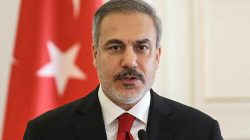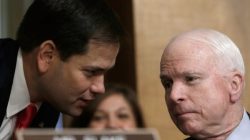A New Era for Liberia: The Path to Transformation
President Joseph Nyuma Boakai is at a pivotal moment in Liberia’s history. His leadership is seen as a potential turning point for the nation, offering a chance to break free from decades of stagnation and mismanagement. The president’s efforts are not just about fulfilling campaign promises but also about addressing deep-rooted issues such as corruption, lack of accountability, and the culture of impunity that have long plagued the country.
Boakai’s initiatives include significant investments in infrastructure, such as road construction and rehabilitation, which are essential for connecting rural communities with urban centers. He has also focused on strengthening anti-corruption institutions like the Anti-Corruption Commission, aiming to restore public trust in government processes. Judicial reforms and increased accountability for government officials are part of a broader strategy to ensure transparency and fairness across all sectors.
These actions reflect a shift from political rhetoric to tangible progress. The Agenda for Transformation, aimed at making Liberia a lower-middle-income country by 2030, is gaining momentum. It emphasizes practical measures to combat poverty, disease, and ignorance—challenges that have hindered national development for years.
For many Liberians, the desire for real change is strong. However, achieving this requires more than just government action. National consensus is crucial on key issues such as improving the education system to support manpower development, promoting industrialization for economic independence, and investing in agriculture to ensure food security. These areas need coordinated efforts from both the public and private sectors.
Political institutions and non-political individuals must reevaluate their perspectives and align with a shared vision for the country. The current climate of condemnation and divisive politics, often driven by opposition parties, is counterproductive if it does not contribute to institutional improvement or infrastructure development. Political entities that neglect these priorities are essentially undermining the very foundation of the state.
Boakai’s national development agenda includes plans to connect rural communities with paved roads, provide stable electricity and piped water, invest in quality education, implement mechanized farming strategies, and ensure technological access for all citizens. This comprehensive approach aims to create a more inclusive and equitable society.
Public institutions and major stakeholders must support and endorse this agenda rather than undermine it. Political parties and governments exist to serve the people, and their decisions significantly impact the well-being of the populace. Therefore, political institutions must collaborate on a shared national development strategy, regardless of their differing philosophies and structures.
It is important to remember that political parties should not be the focus of governance; instead, they should serve as vehicles for national progress. Their role is to drive the country toward prosperity and growth, ensuring that even the most remote communities benefit from their decisions. Good intentions alone are not enough—they must be translated into actionable policies.
Institutional differences should be rooted in ideologies that support the state and develop its people, not in efforts to tear down the nation or undermine its interests. Condemnation that seeks to block effective solutions only leads to suffering and stagnation, which is unacceptable for future generations.
A divided population is prone to internal conflict and failure. Indicators of this include increased devil’s advocacy by media outlets, weak entrepreneurial skills development strategies, lack of alternatives, insufficient cooperation, rising generational envy, and declining morals—all of which hinder common national goals. In such nations, individualism and political party dominance often take precedence over collective progress and good governance.
Liberia must unite intentionally to build a stronger, more prosperous future. While challenges remain, there is hope that the country will rise under the leadership of President Boakai, whose determination to change the narrative offers a beacon of optimism for the nation.







